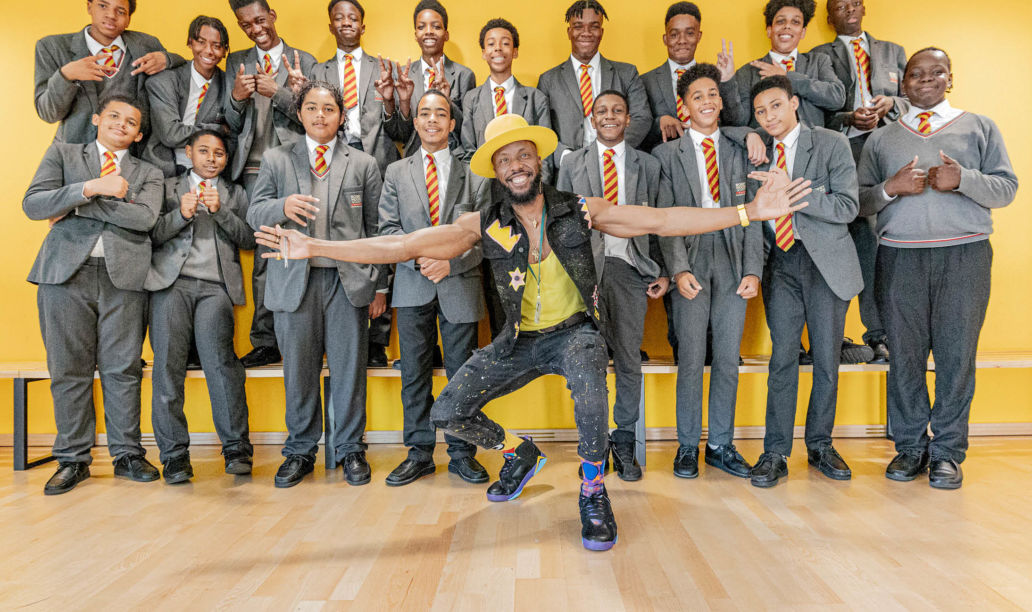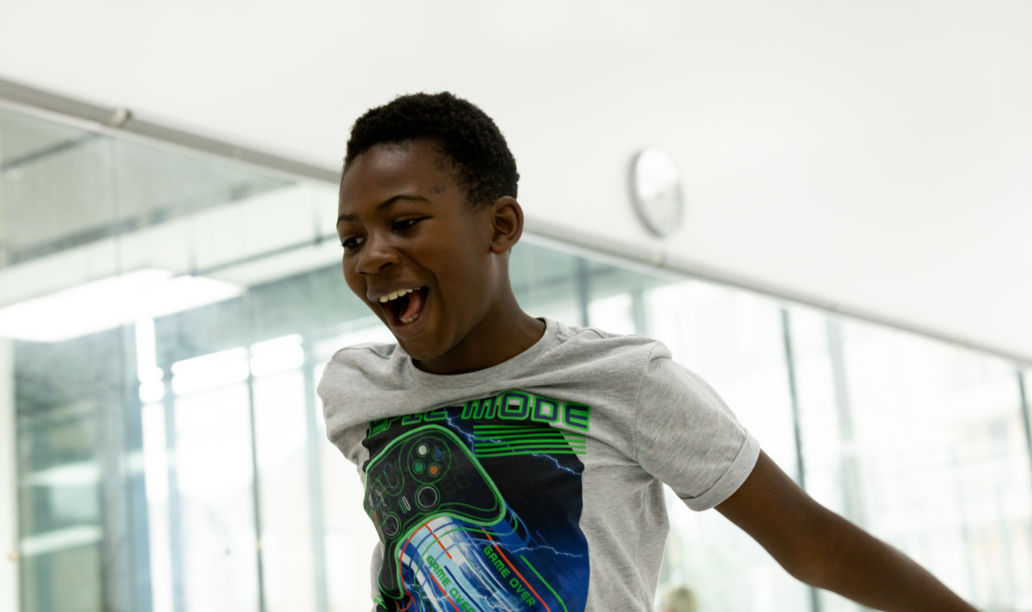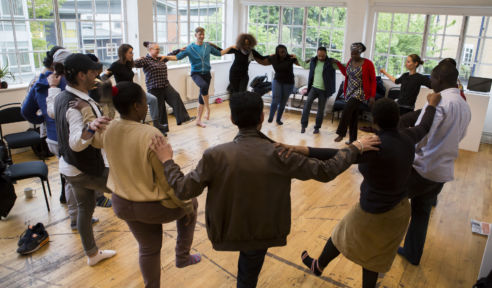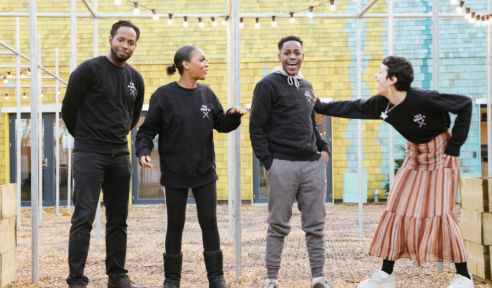In this area we focus our effort on funding partnership working between arts organisations and schools. This work has been hugely disrupted over the past year due to the majority of students learning remotely and then restrictions on school visitors. Early on, arts in schools looked at high risk, but schools and arts organisations have adapted and learned how to do things that felt impossible a year ago.
Responding to Covid
In some cases work has been put on pause, but there have been many innovative steps taken with the move towards digital learning approaches, and in support of the key role that schools have played to sustain their pupils’ nutrition, health and wellbeing during both term time and holidays.
What we are funding
PHF funds have supported the visibility and credibility of arts-based approaches to teaching and learning, as well as activity.
In numbers
Education and learning through the arts grants
Arts-based Learning Fund grants
Teacher Development Fund grants
Value of grants
Total amount awarded
Arts-based Learning Fund
Teacher Development Fund
S.M.I.L.E-ing Boys Project

Kay Rufai started the S.M.I.L.E-ing Boys Project with a focus on ‘mental health and wellbeing for Black boys in London, working in schools’, as a direct response to a rise in youth stabbings.
The pandemic, as well as the Black Lives Matter movement, increased demand. However, during the first national lockdown when pupils moved to studying at home, the work couldn’t take place, as feedback from alumni highlighted that moving online would not be viable, largely because of difficulties with access for the target group.
When schools re-opened for vulnerable children in June, the project went ahead in a few settings: ‘For the young people it was an interesting experience with them being the only children in school. They were able to express how they were navigating the pressures and challenges of being at school, and the uncertainties of their parents being out of the house’. At the same time, exhibitions took place on social media and Instagram. In the face of myriad challenges, the commitment to the work and willingness to improvise was key.
Boys have found the photography and creative writing-based project very helpful for sharing their emotions and thoughts with each other; for parents, it has provided a safe place for their sons and an opportunity to see them in a different way. With high demand for this work, the project has expanded its team of facilitators and, in addition to delivering to more schools, will also work with teachers, ‘upskilling them to unpack cultural themes that disproportionally impact young Black people’.
They were able to express how they were navigating the pressures and challenges of being at school, and the uncertainties of their parents being out of the house.
Teacher Development Fund
Our Teacher Development Fund supports two-year collaborations between arts organisations and clusters of schools to support teachers and school leaders to deliver and embed arts-based learning approaches. Within this Fund we have seen a range of approaches to dealing with the disruption, many projects chose to pause delivery and extend the timeframe for their work. Grants awarded in this year, for Round 4, have a new specific focus on blended approaches (online and in person) to supporting teachers’ learning. Many Round 4 applications focused on how arts-based approaches could support pupils’ learning needs in the aftermath of the pandemic.
Arts-based Learning Fund
Disruption to both the arts and education sectors has meant that partnerships have needed to regroup, rebuild and replan.
In October we revised our guidelines with a tighter focus on educational inequality. Early grants made in the Arts-based Learning Fund build on established practice to meet needs exacerbated by the pandemic, others are looking to support pupil engagement and wellbeing through co-constructing new creative curricula, and others are developing approaches to digital pedagogy. We are seeing strong applications coming through which gives us confidence for the future.
Schools and arts organisations have adapted and learned how to do things that felt impossible a year ago.
DanceEast

DanceEast uses blended learning approaches to support dance teaching - applying digital technologies to augment and enhance real time experiences and physicalising wider curriculum learning in primary schools across Suffolk.
Learnings from a previous Paul Hamlyn Foundation funded ‘Explore and Test’ project meant the organisation felt equipped to react swiftly when lockdown happened ‘when the pandemic came, we were busily pre-recording a first series of sessions for digital delivery to replace in person classes. The Explore and Test project gave us the confidence to grow and learn - applying the knowledge we had built up to our wider programme of community engagement and performances’.
It was apparent that the imperative was to concentrate on what was possible, rather than dwell on what was lost. In contrast to the shutdown of live performances and touring, DanceEast was able to replicate some of that live experience in another way, with a response that was characterised by optimism and positivity.
Clearly, throughout this period of difficulty and dramatic change driven through by the pandemic, schools have been learning rapidly about online lesson delivery and the use of digital communications for interaction with pupils. Coming out of this time, DanceEast has discovered that improved confidence, knowledge and infrastructure within schools means that they are now receptive to working in a blended way – creating great benefits for the organisation’s ‘More and Better’ project, that extends previous activity through the innovative use of technologies.
DanceEast’s reflection on this period is that partnerships built upon honesty, goodwill, shared values and expectations are integral to success. This will be crucial as the organisation moves into an exciting phase of rebalancing new partnerships and priorities, with pre-pandemic ambitions.
We’ve been able to refocus on priorities – some new partnerships, re-examine priorities, and now to rebalance our work.



